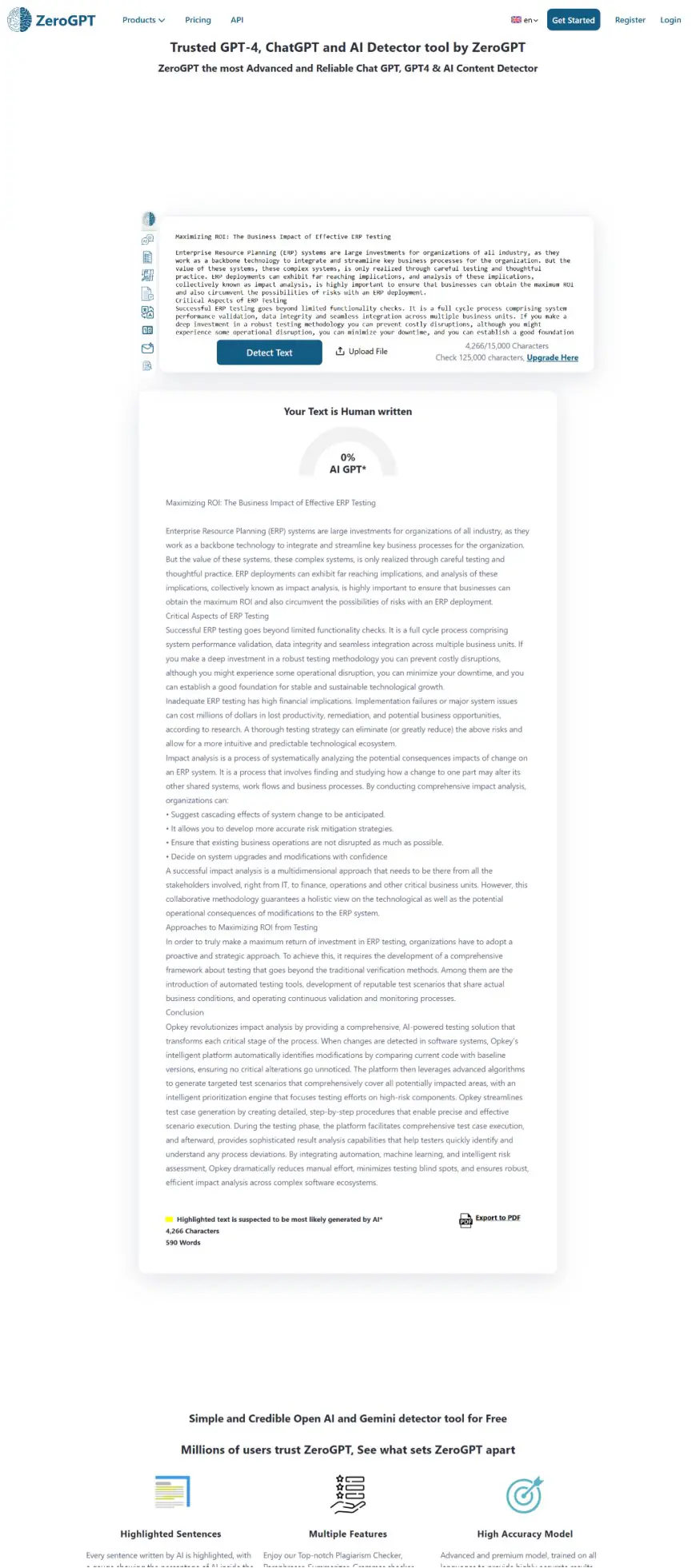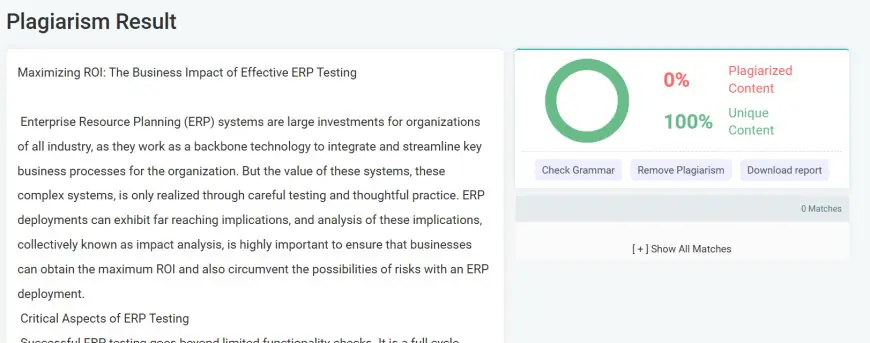Maximizing ROI: The Business Impact of Effective ERP Testing
Discover how effective ERP testing maximizes ROI by streamlining operations, reducing risks, and driving business success. Learn the key strategies now!

Enterprise Resource Planning (ERP) systems are large investments for organizations of all industries, as they work as a backbone technology to integrate and streamline key business processes for the organization. But the value of these systems is only realized through careful testing and thoughtful practice. ERP deployments can exhibit far reaching implications, and analysis of these implications, collectively known as impact analysis, is highly important to ensure that businesses can obtain the maximum ROI and also circumvent the possibilities of risks with an ERP deployment.
Critical Aspects of ERP Testing
Successful ERP testing goes beyond limited functionality checks. It is a full cycle process comprising system performance validation, data integrity and seamless integration across multiple business units. If you make a deep investment in a robust testing methodology, you can prevent costly disruptions. Although you might experience some operational disruption, you can minimize your downtime and establish a good foundation for stable and sustainable technological growth.
Inadequate ERP testing has high financial implications. Implementation failures or major system issues can cost millions of dollars in lost productivity, remediation, and potential business opportunities, according to research. A thorough testing strategy can eliminate (or greatly reduce) the above risks and allow for a more intuitive and predictable technological ecosystem.
Impact analysis is a process of systematically analyzing the potential consequences of change on an ERP system. It is a process that involves finding and studying how a change to one part may alter its other shared systems, work flows and business processes. By conducting comprehensive impact analysis, organizations can:
-
Suggest cascading effects of system change to be anticipated.
-
It allows you to develop more accurate risk mitigation strategies.
-
Ensure that existing business operations are not disrupted as much as possible.
-
Decide on system upgrades and modifications with confidence
A successful impact analysis is a multidimensional approach that needs to be there from all the stakeholders involved, right from IT, to finance, operations and other critical business units. However, this collaborative methodology guarantees a holistic view on the technological as well as the potential operational consequences of modifications to the ERP system.
Approaches to Maximizing ROI from Testing
In order to truly make a maximum return of investment in ERP testing, organizations have to adopt a proactive and strategic approach. To achieve this, it requires the development of a comprehensive framework about testing that goes beyond the traditional verification methods. Among them are the introduction of automated testing tools, development of reputable test scenarios that share actual business conditions, and operating continuous validation and monitoring processes.
Conclusion
Opkey revolutionizes impact analysis by providing a comprehensive, AI-powered testing solution that transforms each critical stage of the process. When changes are detected in software systems, Opkey's intelligent platform automatically identifies modifications by comparing current code with baseline versions, ensuring no critical alterations go unnoticed. The platform then leverages advanced algorithms to generate targeted test scenarios that comprehensively cover all potentially impacted areas, with an intelligent prioritization engine that focuses testing efforts on high-risk components. Opkey streamlines test case generation by creating detailed, step-by-step procedures that enable precise and effective scenario execution. During the testing phase, the platform facilitates comprehensive test case execution, and afterward, provides sophisticated result analysis capabilities that help testers quickly identify and understand any process deviations. By integrating automation, machine learning, and intelligent risk assessment, Opkey dramatically reduces manual effort, minimizes testing blind spots, and ensures robust, efficient impact analysis across complex software ecosystems.


What's Your Reaction?




















































































